True Bugs and their Caballeronia Symbionts
For many insects, including aphids, beneficial symbionts are maternally inherited by offspring before birth, ensuring infection. While beneficial to the insect, this makes experimentation on host and microbe responses during symbiont establishment more challenging. Many true bug species have obligate associations with symbiotic bacteria that are transmitted externally. These systems allow us to introduce the symbiont through the natural route of infection and then monitor the physiological consequences
Our related research over the last several years has focused on:
- assessing patterns of symbiont-specificity and host species
- assaying symbiont diversity in association with squash bugs (Anasa tristis)
- assaying the benefits of these associations
- studying how microbial interactions, both in vitro and in vivo, mediate establishment
- studying how stochasticity (drift) impacts symbiont establishment
- studying the role of host behavior in the establishment of symbioses
- studying whether and how the symbiosis influences the ability of their insect hosts to vector plant pathogens
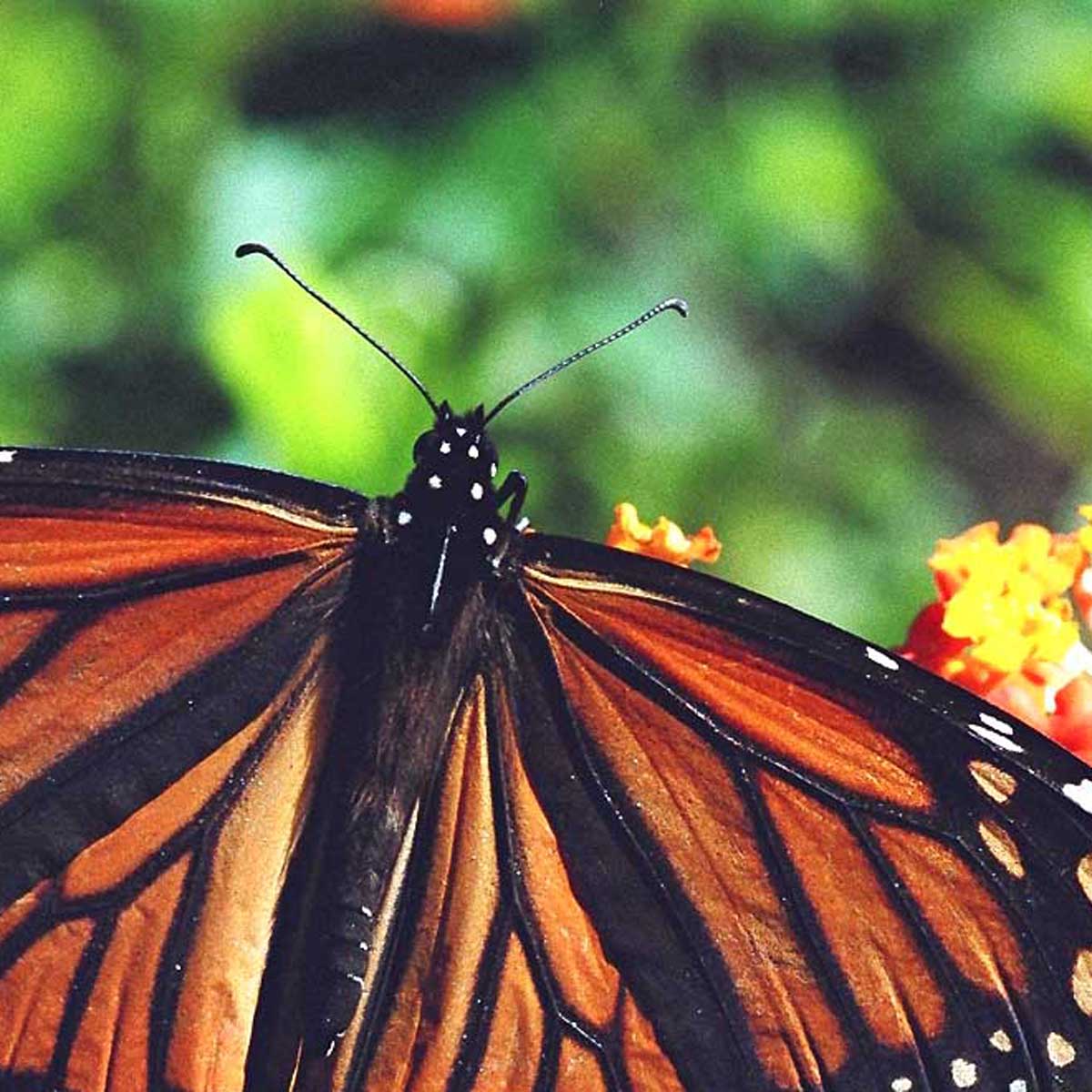
Monarch Butterfly Microbiomes and Defenses against Protozoan Parasites
In collaboration with Jaap de Roode, we are exploring how consumption of certain milkweed species, particularly those high in toxic cardenolides, increase monarch butterfly resistance to a natural protozoan parasite, Ophryocystis elektroscirrha. We have conducted work on host immune responses to the pathogen and how host plants impact the composition of the gut microbial community. We are currently studying the influence of gut microbes on resistant to the parasite.
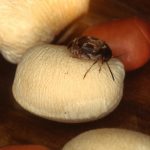
Bean Beetles and their Microbiomes
In collaboration with Chris Beck (Emory University), Larry Blumer (Morehouse University) and Sinead Younge (Morehouse University), we are studying the gut associated microbiome of bean beetles (Callosobruchus maculatus). This work developed first as a project to leverage the use of the bean beetle, an excellent experimental system for undergraduate laboratories, as a tool to introduce students to microbiome research. We have disseminated undergraduate research modules based on this work through NSF-funded teacher workshops.
Our basic bean beetle research focuses on:
- assessing how diet changes influence the structure and function of the microbiome.
- studying whether specific gut microbes facilitate the exclusive feeding of bean beetles on dried beans
Our discipline-based eduction research focuses on:
- how participation in the bean beetle microbiome module impacts students’ interest and continuation in science.
- how the structure of Course-Based Undergraduate Research Experiences (CUREs) impact students.
- how students overcome challenges in research settings.
For more information on bean beetles, see beanbeetles.org
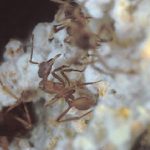
Fungus-Growing Ant Symbiosis
The fungus-growing ant–microbe symbiosis consists of coevolving microbial mutualists and antagonists. The diverse fungal lineages that the ants cultivate can be attacked by parasitic fungi in the genus Escovopsis. Highly specific host and parasite adaptations shape the ability of Escovopsis lineages to switch to novel hosts over evolutionary time. Specifically, Escovopsis spp. are attracted to their hosts via chemotaxis. This response is host-specific; Escovopsis spp. grow toward their natural host-cultivars more rapidly than toward other closely-related fungi. Moreover, the cultivated fungi secrete compounds that can suppress Escovopsis growth. These antibiotic defenses are likewise specific; in most interactions, cultivars can inhibit growth of Escovopsis spp. not known to infect them in nature but cannot inhibit isolates of their naturally-infecting pathogens.
Our fungus-growing ant-related research over the last several years has focused on:
- collaborative projects to sequence and annotate fungal genomes, with a focus on the evolution of Escovopsis and the cultivated fungi of basal fungus-growing ants.
- comprehensive studies of Escovopsis specificity and host-switching potential
- collaborative research on the chemistry of the ants’ cultivated fungi, with a focus on identifying compounds that alter interactions with other microbes, including Escovopsis.
Video on the Fungus-Growing Ant System
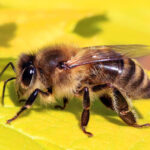
Impacts of Antibiotics on Bee Behavior and their Microbiomes
Bees are a model for animal-microbiome research and are important for their pollination services. Research led by Laura Avila investigates the impact of antibiotic exposure on the gut microbial community composition of bees and on bee behavior and pollination services.
Our current bees research focuses on:
- Assessing how antibiotic exposure impacts bee phenotypes in the field
- characterizing the resilience of the bee microbiome after perturbation.
PAST RESEARCH
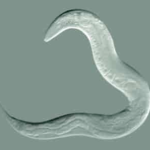
C. elegans nematodes are a tractable model to study evolution in response to interactions with other species, including potentially beneficial microbial symbionts. Using an experimental evolution approach, former graduate student Kim Hoang led a project to study how association with a microbe that could protect the nematodes from heat stress impacted the evolution of both the hosts and the microbe.
Invasion of a Symbiosis: Megacopta cribraria and its Bacteria
Megacopta Cribraria, the Kudzu Bug, is a pest of soybeans in Asia. In Japan, the ability of these stinkbugs to utilize soybeans is dictated by what strain of bacterial symbiont the bugs carry. In Fall 2009, these bugs were first found in the United States. They have since spread onto soybeans in several states in the Southeastern United States.
Our Megacopta-related research focused on:
- characterizing the impact of symbiosis on development of these bugs on alternative host plants and in their invasive range.
- assessing the ability of the bugs to maintain symbiont titers when reared on alternative host plants.
- Using transcriptomics, assessing host responses to symbiont presence.
For more information on the Megacopta invasion, visit KudzuBug.org.
Aphids are host to both beneficial and harmful microbes. Of benefit, aphids harbor, Buchnera aphidicola, an obligate bacterial symbiont, which provides amino acids not available in the aphid diet. Aphids frequently also harbor facultative, symbiotic bacteria that can provide protection against pathogens and parasites. Aphid pathogens include a number of viruses, fungi and bacteria.
Our aphid-related research focused on:
- Studying the benefits and costs of symbiosis
- Characterizing the aphid immune system and other forms of defense by coupling genomic and immunological approaches
- Studying aphid immune and defense responses towards fungal pathogens in the presence and absence of protective facultative symbionts
Some Aphid News



